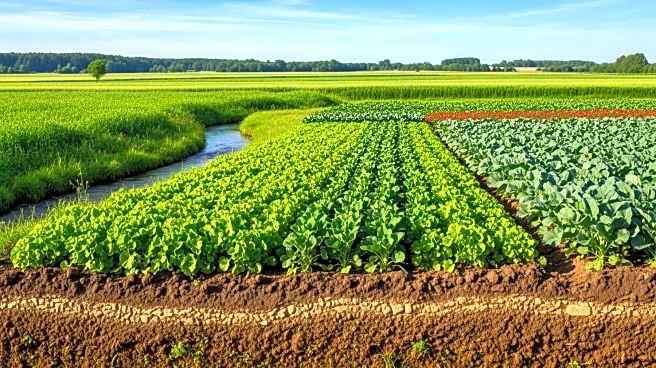What's Happening?
Regenerative agriculture is gaining momentum in Brazil, as highlighted by Kadigia Faccin, a professor at Fundação Dom Cabral. This approach emphasizes collaboration among farmers, regardless of their scale,
to adopt sustainable practices. However, the transition faces significant hurdles, including a lack of technical guidance and financial support. Additionally, the absence of reliable metrics to evaluate regenerative farming practices complicates the process. Despite these challenges, Brazil's ABC Plan, now known as Renovagro, promotes low-carbon agriculture, but there is a call for a Harvest Plan that better supports small farmers.
Why It's Important?
The shift towards regenerative agriculture in Brazil is significant as it aligns with global efforts to promote sustainable farming practices. This movement could potentially transform agricultural practices, reducing environmental impact and enhancing soil health. For U.S. stakeholders, this development may influence international agricultural policies and trade, as Brazil is a major player in the global agricultural market. The success of such initiatives could serve as a model for other countries, including the U.S., to adopt similar sustainable practices, potentially affecting global food security and environmental policies.









